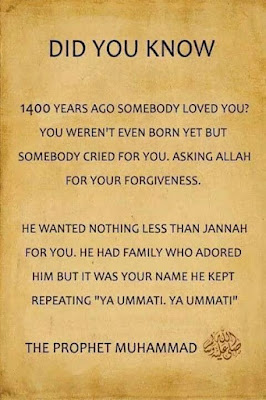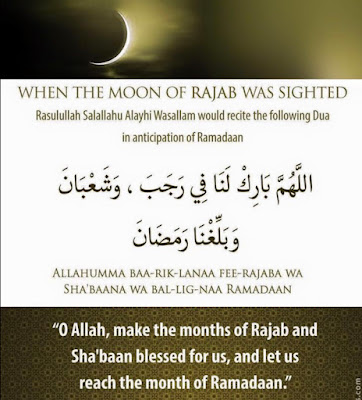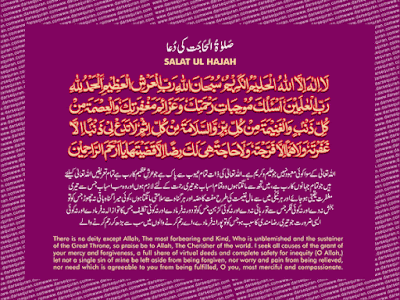ANGELS ACCOMPANY PEOPLE WHO DO DHIKR
The Holy Qur'an mentioned...
ٱلَّذِينَ يَذْكُرُونَ ٱللَّهَ قِيَٰمًا وَقُعُودًا وَعَلَىٰ جُنُوبِهِمْ وَيَتَفَكَّرُونَ فِى خَلْقِ ٱلسَّمَٰوَٰتِ وَٱلْأَرْضِ رَبَّنَا مَا خَلَقْتَ هَٰذَا بَٰطِلًا سُبْحَٰنَكَ فَقِنَا عَذَابَ ٱلنَّارِ
" Those who remember Allāh (always, and in prayers) standing, sitting, and lying down on their sides, and think deeply about the creation of the heavens and the earth, (saying):
“Our Lord! You have not created (all) this without purpose, glory to You! (Exalted be You above all that they associate with You as partners). Give us salvation from the torment of the Fire.”
(Surah Al Imran :191)
To always remember Allah, the best way for us as servants of Allah is to do dhikr.
It turns out, not only humans who dhikr to Allah Subhanahu Wa Ta'ala, angels also participate in dhikr, glorifying Allah Subhanahu Wa Ta'ala
When we are doing dhikr, angels are always beside us, and join us in dhikr.
Allah said dhikr is the greatest ibadah....
ٱتْلُ مَآ أُوحِىَ إِلَيْكَ مِنَ ٱلْكِتَٰبِ وَأَقِمِ ٱلصَّلَوٰةَ ۖ إِنَّ ٱلصَّلَوٰةَ تَنْهَىٰ عَنِ ٱلْفَحْشَآءِ وَٱلْمُنكَرِ ۗ وَلَذِكْرُ ٱللَّهِ أَكْبَرُ ۗ وَٱللَّهُ يَعْلَمُ مَا تَصْنَعُونَ
“Recite (O Muhammad SAW) what has been revealed to you of the Book (the Qur’ān), and perform As-Salāt (IqamātasSalāt). Verily, As-Salāt (the prayer) prevents from Al-Fahshā’ (i.e. great sins of every kind, unlawful sexual intercourse, etc.) and Al-Munkar (i.e. disbelief, polytheism, and every kind of evil wicked deed, etc.) and the remembering (praising, etc.) of (you by) Allāh (in front of the angels) is greater indeed [than your remembering (praising, etc.) Allāh in prayers, etc.]. And Allāh knows what you do.”
(Surah Al-‘Ankabut :45)
When we visit the majlis of knowledge to glorify Allah Subhanahu Wa Ta'ala with dhikr, angels are also there.
Angels accompany us who are doing dhikr, remembering Allah.
In fact, Rasulullah Shalallahu Alaihi Wasallam once said that angels will always be beside those who remember Allah always pray for that person.
The Prophet Muhammad Shallallaahu'Alaihi Wasallam said:
‘udhkur Allaha hatta yaqulu majnun’
“Remember / mention Allah as much as you want, until people say that you are crazy and foolish”
[Narrated by Ahmad in his Musnad, Ibn Hibban in his Sahih, and al-Hakim who declared it sahih]
The Messenger of Allah (SAW) also said,
"Every human being who gathers in the assembly of knowledge by always remembering Allah, the angels will accompany him.
The angels accompanying dhikr to,
''Stand up, O servants of Allah, indeed Allah has forgiven your sins and Allah has replaced your condition'."
Subhan Allah, that is the prayer of the angels for those who remember Allah.
If you don’t do dhikr of Allah, Allah appoints for you a shaitaan to be your intimate companion..
وَمَن يَعْشُ عَن ذِكْرِ ٱلرَّحْمَٰنِ نُقَيِّضْ لَهُۥ شَيْطَٰنًا فَهُوَ لَهُۥ قَرِينٌ
“And whosoever turns away (blinds himself) from the remembrance of the Most Beneficent (Allāh) (i.e. this Qur’ān and worship of Allāh), We appoint for him Shaitān (Satan devil) to be a Qarīn (an intimate companion) to him.”
(Surah Az-Zukhruf :36)
Angels do dhikr every time or any time.
We as creatures who do not escape from sin, should also be more enthusiastic about dhikr to Allah. So, let's grow love for dhikr...
May Allah bless us always.. Aameen Suma Aameen 🤲




















































